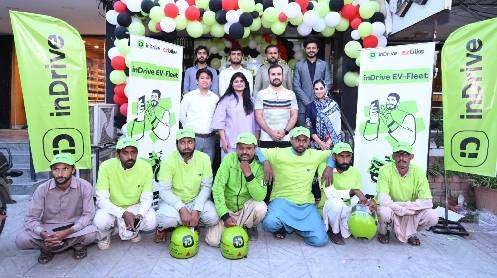LAHORE/ISLAMABAD: Pakistan’s transport sector is gaining momentum in its transition from fossil fuels to electric vehicles (EVs), with global mobility platform inDrive leading a series of groundbreaking initiatives to support this green shift.
Aligned with the government’s goal of achieving 30% EV penetration by 2030, inDrive is actively fostering local partnerships, encouraging innovation, and introducing cost-effective solutions for drivers.
“The EV market in Pakistan is gaining traction with the rise of local manufacturers and the entry of Chinese players,” said Aman Alekseev, Impact Projects Manager at inDrive. “We aim to make this transition inclusive and scalable through collaboration.”
One key initiative involves retrofitting conventional petrol motorcycles into EVs using swappable batteries, supported by a network of 21 battery swap stations in Islamabad. In just six months, 60 converted bikes have logged over 400,000 kilometres, saving drivers around Rs1.4 million in fuel and maintenance costs—translating to 40% monthly savings compared to petrol bikes.
To ease upfront costs, inDrive and its partners are piloting a ‘Buy Now, Pay Later’ scheme to enable riders to afford new electric motorcycles with minimal initial investment.
The company is also eyeing four-wheel EV deployment, aiming to introduce 50 electric cars in each of Islamabad, Lahore, and Karachi for ride-hailing services. “These efforts build public trust and demonstrate that EVs are a practical solution, not just an idea,” said Alekseev.
inDrive is also the first ride-hailing service in Pakistan to incorporate AI for smarter dispatching, fraud prevention, and enhanced user experience, according to Muhammad Awais Saeed, Country Head of inDrive Pakistan.
He noted ongoing projects include bike swapping stations, expanded retrofitting, and potential collaboration with local EV manufacturer Honri. However, Saeed acknowledged bureaucratic hurdles remain a challenge to scaling these innovations quickly.







